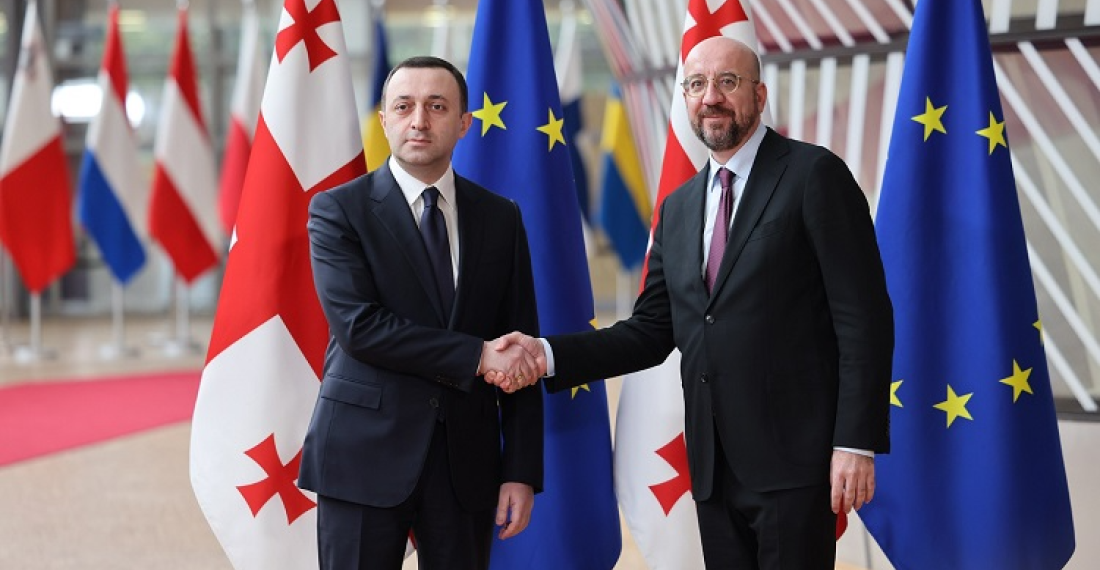The Prime Minister of Georgia Irakli Garibashvili and the President of the European Council Charles Michel met in Brussels on Tuesday (25 April) to review Georgia's progress towards membership of the EU.
According to a press release from the Georgian government, "Irakli Garibashvili briefed the President of the European Council about Georgia’s efforts toward fulfilling the European Commission’s 12 priorities and pointed out that, in this process, the authorities maintain continuous consultations with EU institutions and member states, also the Venice Commission and OSCE/ODIHR."
Garibashvili also stressed the importance of granting Georgia candidate status by the end of the year because "a large portion of the recommendations has been fulfilled".
The Georgian Prime Minister also argued that EU-Georgia Association Agreement, the Deep and Comprehensive Free Trade Agreement (DCFTA) with the EU, visa-free travel, and the recently granted European perspective "demonstrate Georgia’s progress toward European integration".
They also discussed the war in Ukraine, as well as the region's current security environment.
Following their meeting, Garibashvili tweeted, "We continue strengthening our relations. Georgia is committed to finalizing 12 recommendations and deserves candidate status this year. Together Georgia and the EU will promote peace, democracy & economic growth in the region."
Meanwhile, Vakhtang Makharoblishvili, Georgia's Representative to the European Union, said following the meeting, "The President of the European Council expressed his support for Georgia on the path of European integration. Charles Michel is ready to help and support our country at all stages - both in the process of implementing reforms and in the context of relations with other states within the European Union."







